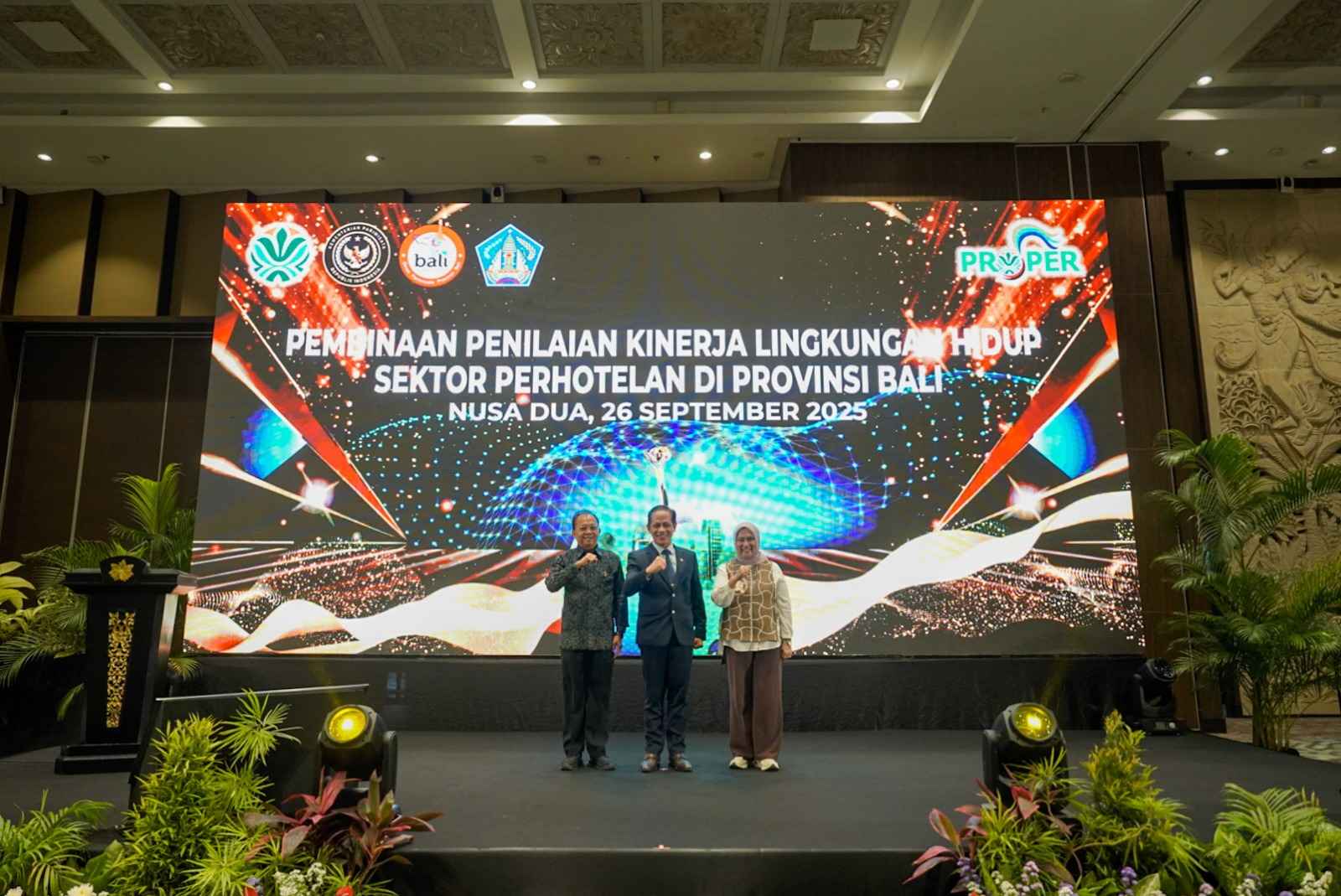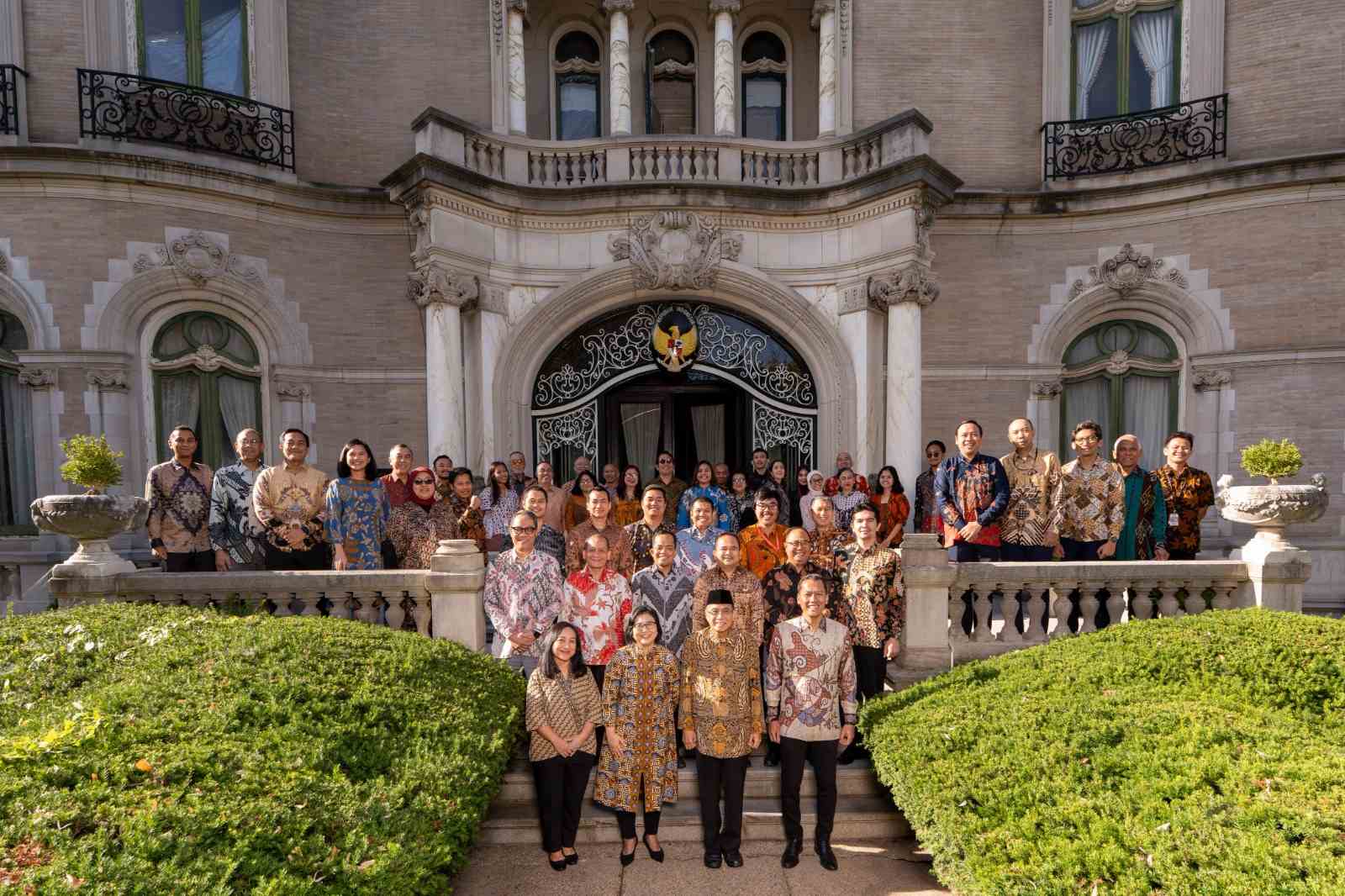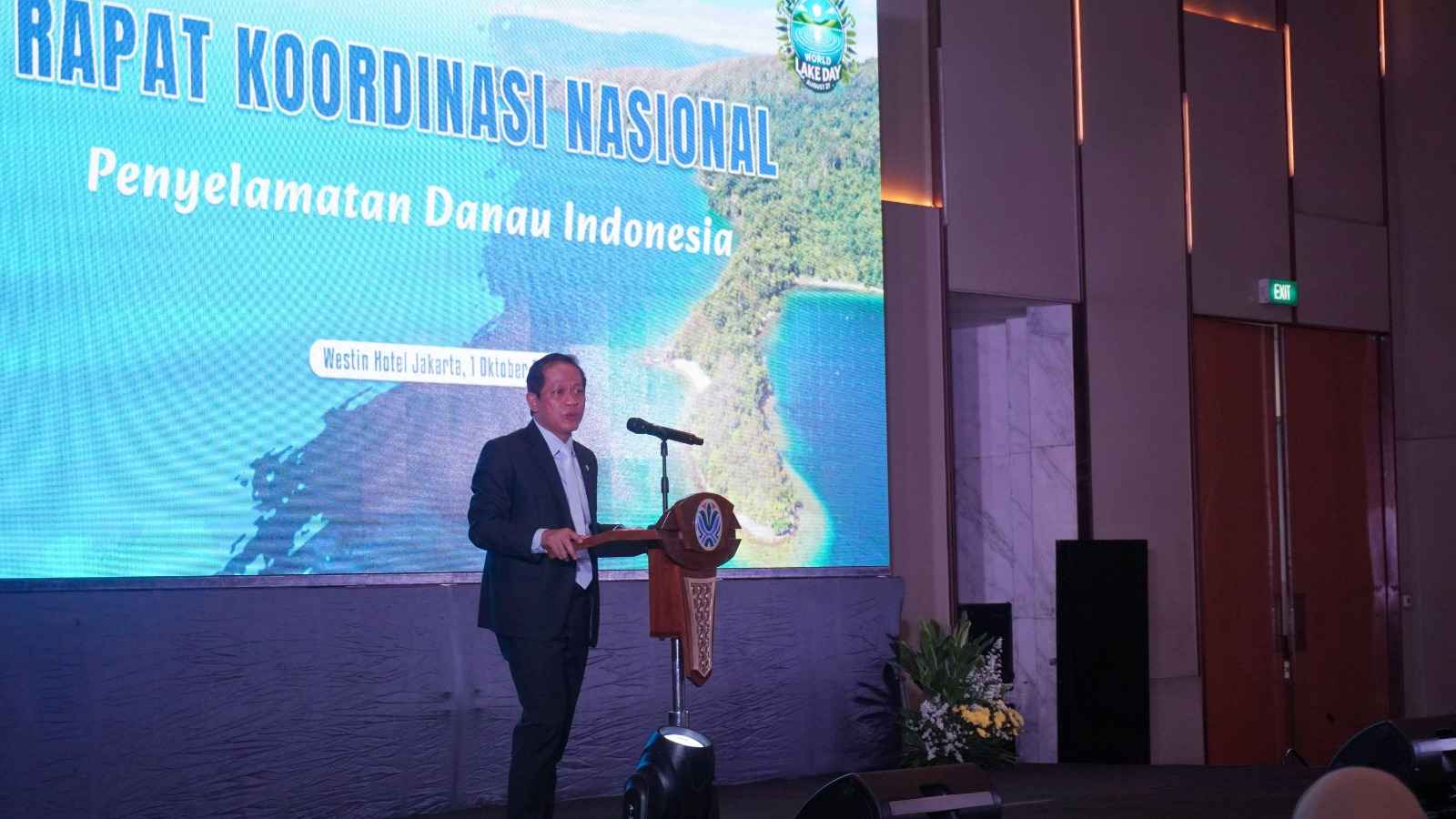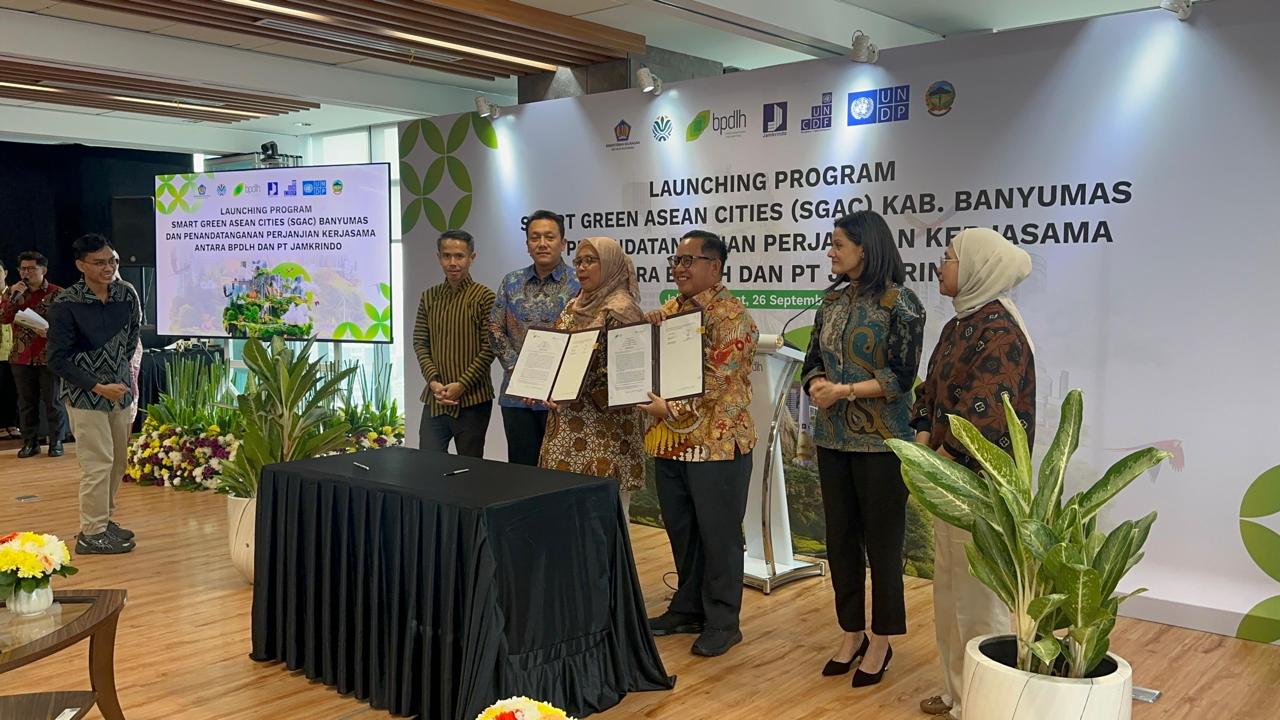Enviro News Asia, Denpasar — The government has emphasized the vital role of the hotel sector in realizing green tourism in Indonesia, particularly in Bali, one of the world’s leading destinations.
Minister of Environment Hanif Faisol Nurofiq stressed that hotels are not only economic drivers but also represent the nation’s image in the eyes of international tourists. “Tourism growth must go hand in hand with environmental preservation,” he stated during the Coordination Meeting of Bali’s Hospitality Stakeholders, attended by the central government, the Bali provincial government, PHRI, and business actors in Denpasar, Bali, Friday (Sept 26, 2025).
Hanif highlighted the serious impact of land conversion on ecosystems. The recent major flooding in Bali was described as an alarm for all parties. “The hotel industry must help protect nature, not just reap the profits,” he asserted.
However, the 2025 PROPER evaluation revealed that none of the 229 hotels in Bali met the environmentally compliant category, with most still rated red. Nonetheless, the government acknowledged several hotels that have begun adopting eco-friendly innovations such as energy-saving technologies, green buildings, and modern waste management.
To accelerate the transition, the government has pledged Green Hotel certification, special promotions, and incentives for hotels committed to sustainability. CSR programs are also being directed toward tangible efforts, including tree planting, watershed restoration, and the development of green open spaces.
In addition, the government is promoting green infrastructure development—from infiltration parks and green roofs to vegetated walls—which offer ecological benefits while enhancing hotel aesthetics.
Business actors have welcomed the plan for PROPER hotel guidance by the Ministry of Environment. They hope for additional time to complete reporting data so that environmental governance quality can be further optimized.
Hanif emphasized that protecting the environment means safeguarding long-term business assets. “Those who comply will be rewarded with incentives, while those who neglect their obligations will face sanctions,” he concluded. (*)
















